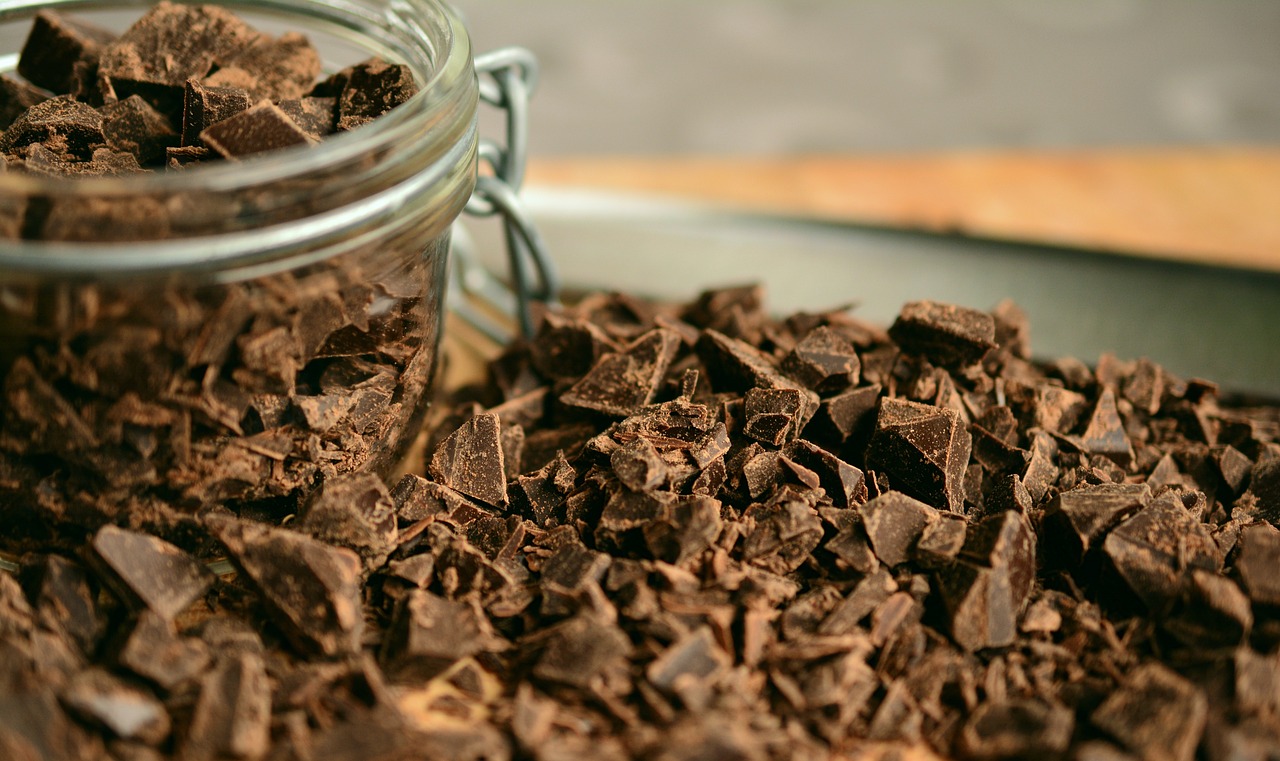Introduction:
Chocolate is a beloved treat enjoyed by people worldwide. While it is often associated with indulgence, certain types of chocolate can offer surprising health benefits. In this article, we will explore five types of chocolate that not only satisfy your sweet tooth but also provide potential health advantages. So, let's delve into the world of chocolate and its potential positive impact on our well-being.
1. Dark Chocolate:
Dark chocolate is a popular choice known for its rich, bittersweet flavor. It contains a higher percentage of cocoa solids and less added sugar compared to other varieties. Some potential health benefits of dark chocolate include:
- Antioxidant Power:
Dark chocolate is packed with antioxidants, such as flavonoids, which help combat free radicals and reduce oxidative stress in the body.
- Heart Health:
Studies suggest that consuming dark chocolate in moderation may have a positive effect on cardiovascular health, including lowering blood pressure and improving blood flow.
- Mood Enhancement:
Dark chocolate contains compounds that can promote the release of endorphins, which contribute to a sense of well-being and may help improve mood.
2. Raw Cacao:
Raw cacao refers to unprocessed chocolate made from the cacao bean. It is rich in nutrients and retains higher levels of antioxidants compared to processed chocolates. Some potential health benefits of raw cacao include:
- Nutritional Powerhouse:
Raw cacao is a good source of minerals like magnesium, iron, and potassium. It also contains beneficial fiber and essential fatty acids.
- Energy Boost:
Theobromine, a natural stimulant found in raw cacao, can provide a gentle energy boost without the jitters often associated with caffeine.
- Cognitive Function:
Flavanols present in raw cacao have been linked to improved cognitive performance and brain health.
3. Milk Chocolate:
Milk chocolate is a widely enjoyed variety that combines cocoa solids, milk powder, and sugar. While it is not as rich in antioxidants as dark chocolate, it can still offer certain health benefits:
- Nutrient Content:
Milk chocolate contains essential vitamins and minerals, including calcium, vitamin D, and B vitamins, which contribute to bone health and energy production.
- Mood Elevation:
The pleasurable taste of milk chocolate can have mood-lifting effects by stimulating the release of endorphins and triggering feelings of happiness.
4. White Chocolate:
White chocolate is technically not chocolate since it lacks cocoa solids. However, it is made from cocoa butter, sugar, and milk, and can still provide some benefits:
- Skin Nourishment:
Cocoa butter, a key ingredient in white chocolate, is known for its moisturizing properties, making it a common ingredient in skincare products.
- Mood Booster:
Similar to other chocolates, white chocolate can promote the release of endorphins and enhance mood.
5. Sugar-Free Chocolate:
For those seeking a chocolate fix without added sugars, sugar-free chocolates are an excellent option. They are typically sweetened with alternative sweeteners like stevia or erythritol. Some potential benefits include:
- Blood Sugar Management:
Sugar-free chocolate can be suitable for individuals with diabetes or those aiming to manage their blood sugar levels.
- Weight Management:
By reducing sugar content, sugar-free chocolates can be lower in calories, which may support weight management goals.
Conclusion:
Chocolate, particularly dark chocolate and raw cacao, offers various potential health benefits, ranging from antioxidant properties to mood enhancement and cardiovascular health. While moderation is key due to its calorie and fat content, incorporating small amounts of high-quality chocolate into a balanced diet can provide a delightful treat with potential positive effects on well-being.
References:
- Gu, Y., et al. (2017). Dark Chocolate and Cocoa Products: Is It Time to Widen Their Cardioprotective Benefits? Journal of Nutrition, 147(6), 1219-1222.
- Latif, R. (2013). Health Benefits of Cocoa. Current Opinion in Clinical Nutrition and Metabolic Care, 16(6), 669-674.
- Nehlig, A. (2013). The Neuroprotective Effects of Cocoa Flavanol and Its Influence on Cognitive Performance. British Journal of Clinical Pharmacology, 75(3), 716-727.
- Rull, G., et al. (2019). Chocolate Consumption and Risk of Coronary Heart Disease, Stroke, and Diabetes: A Meta-Analysis of Prospective Studies. Nutrients, 11(6), 1474.
- Steinberg, F. M., et al. (2003). Cocoa and Chocolate Flavonoids: Implications for Cardiovascular Health. Journal of the American Dietetic Association, 103(2), 215-223.
- Yamashita, Y., et al. (2018). The Impact of Cocoa Flavanol Consumption on Blood Pressure Regulation, Cognitive Performance and Cardiovascular Health: A Systematic Review and Meta-Analysis of Randomized Controlled Trials. Journal of Nutrition, 148(6), 962-971.
Note: The health benefits mentioned are based on scientific research, but individual results may vary. It is always recommended to consult with a healthcare professional for personalized advice.










